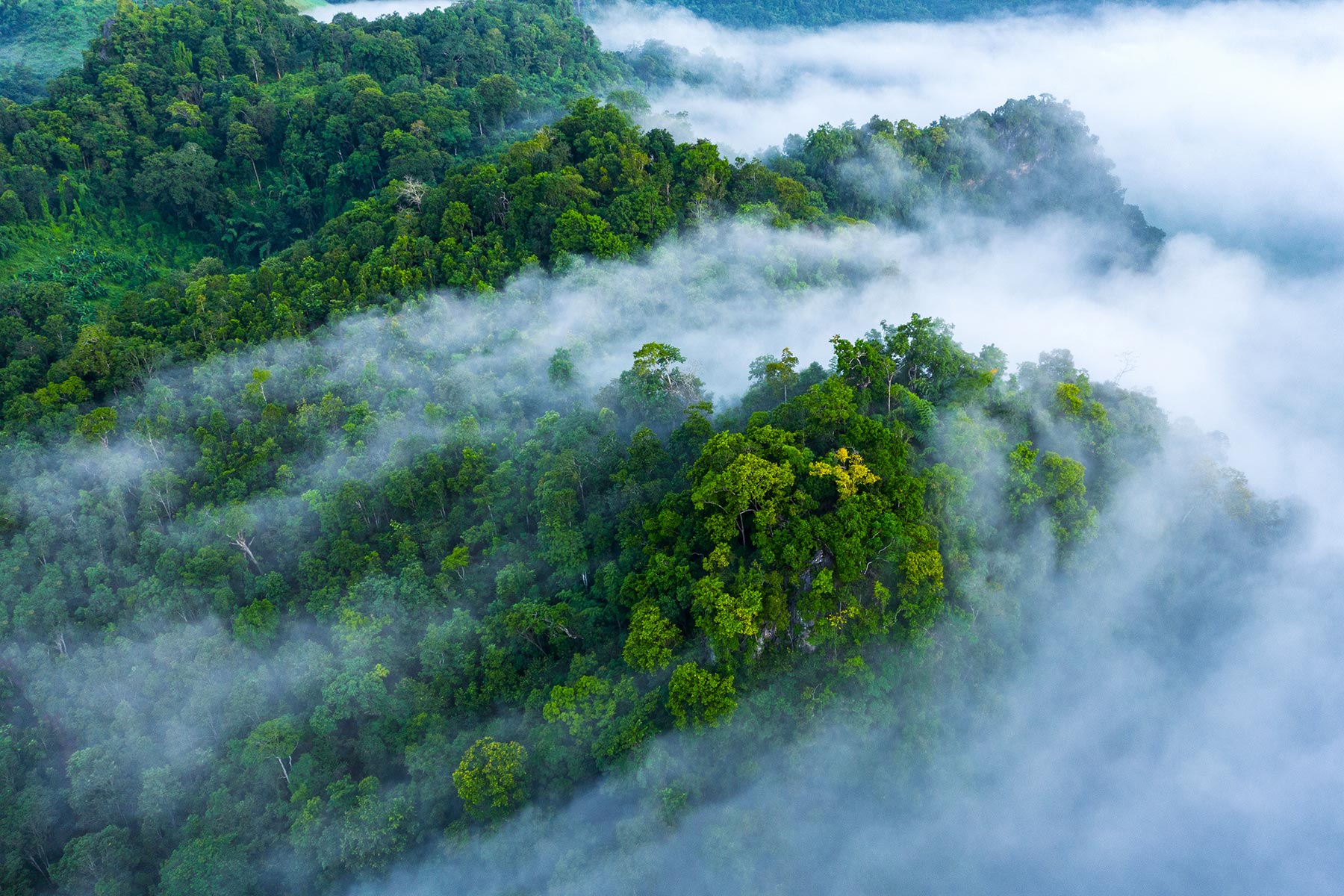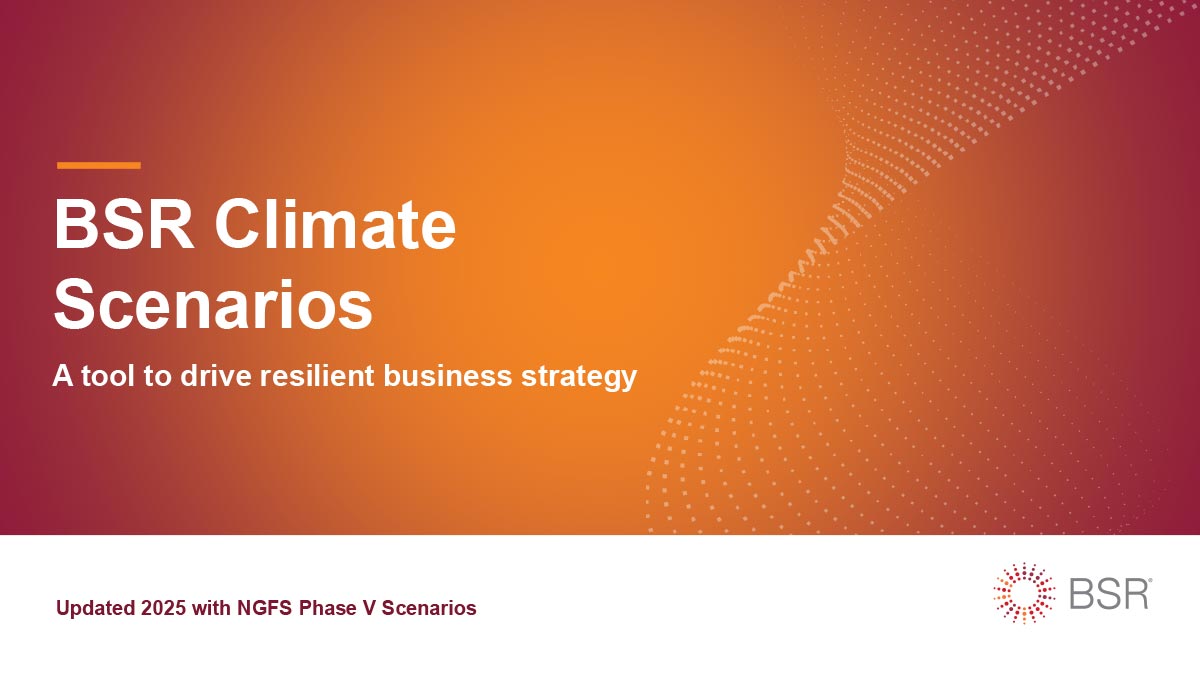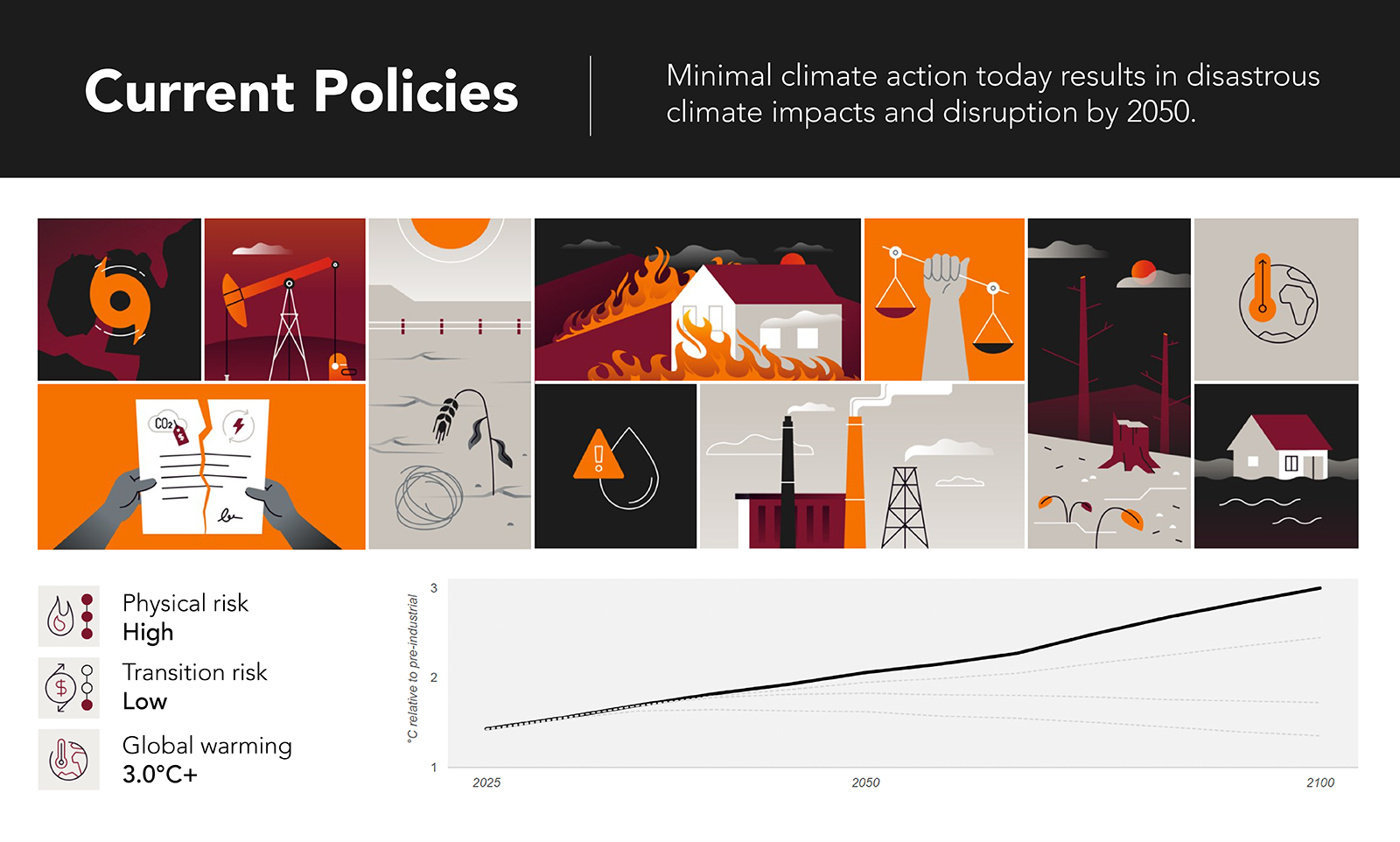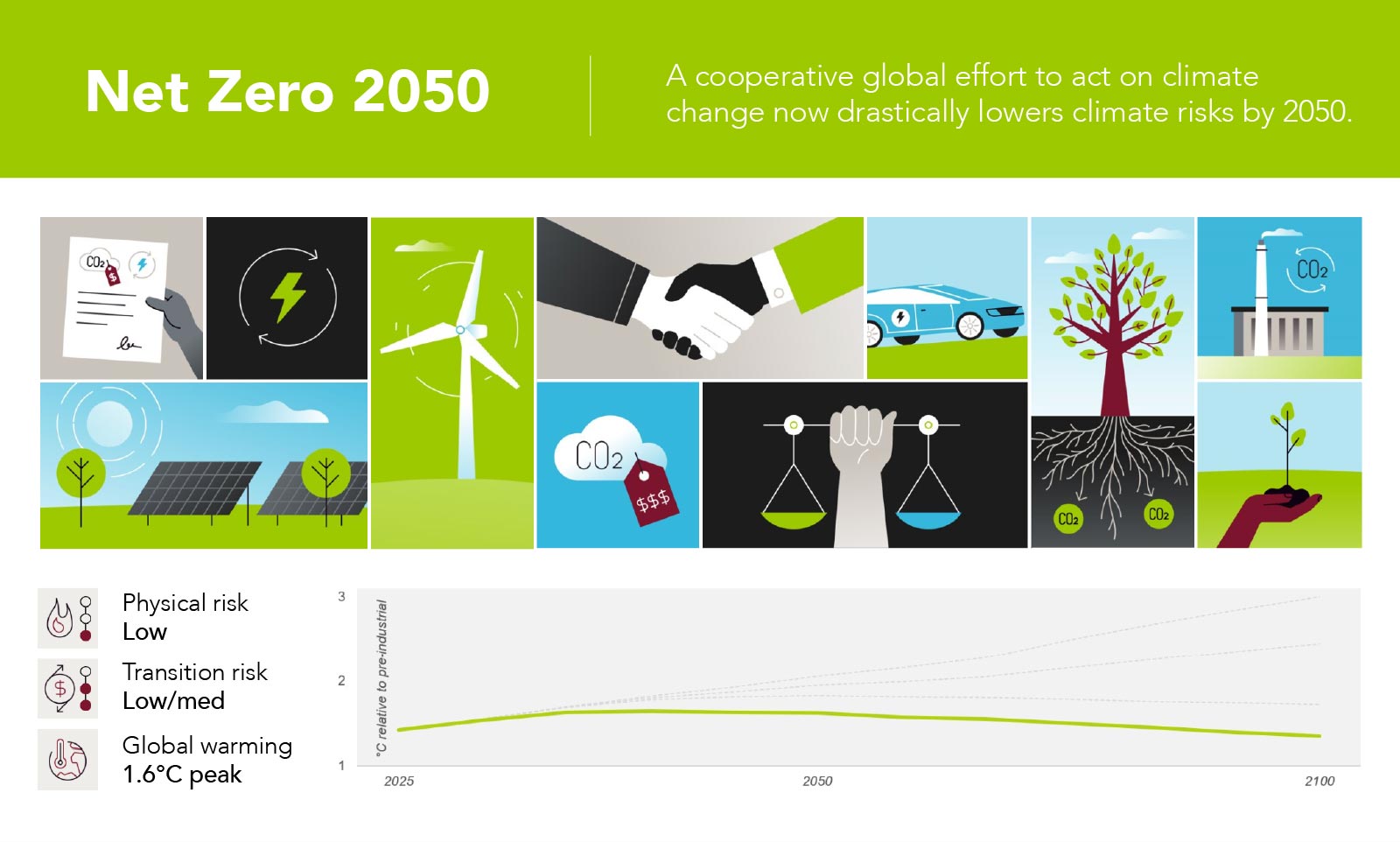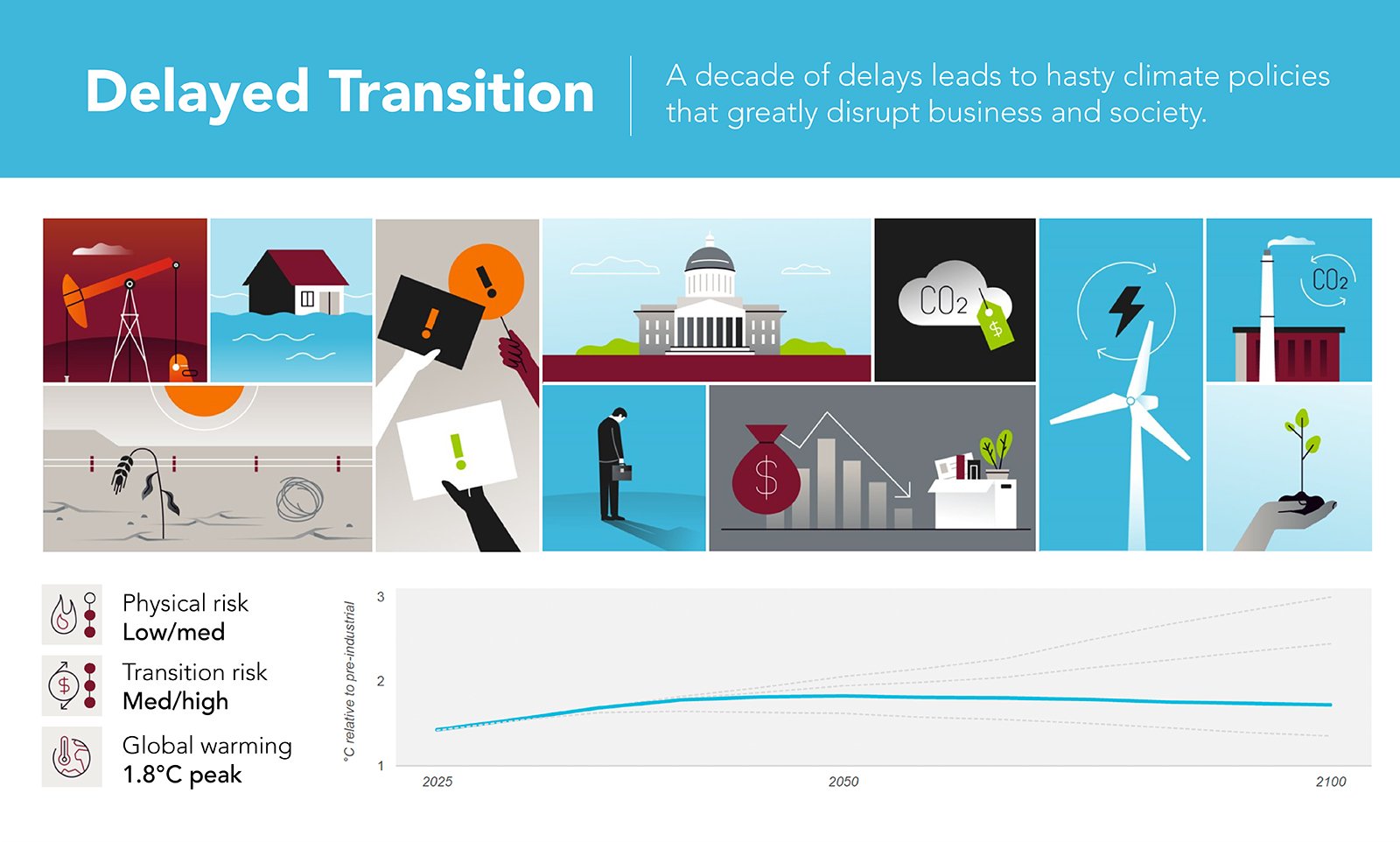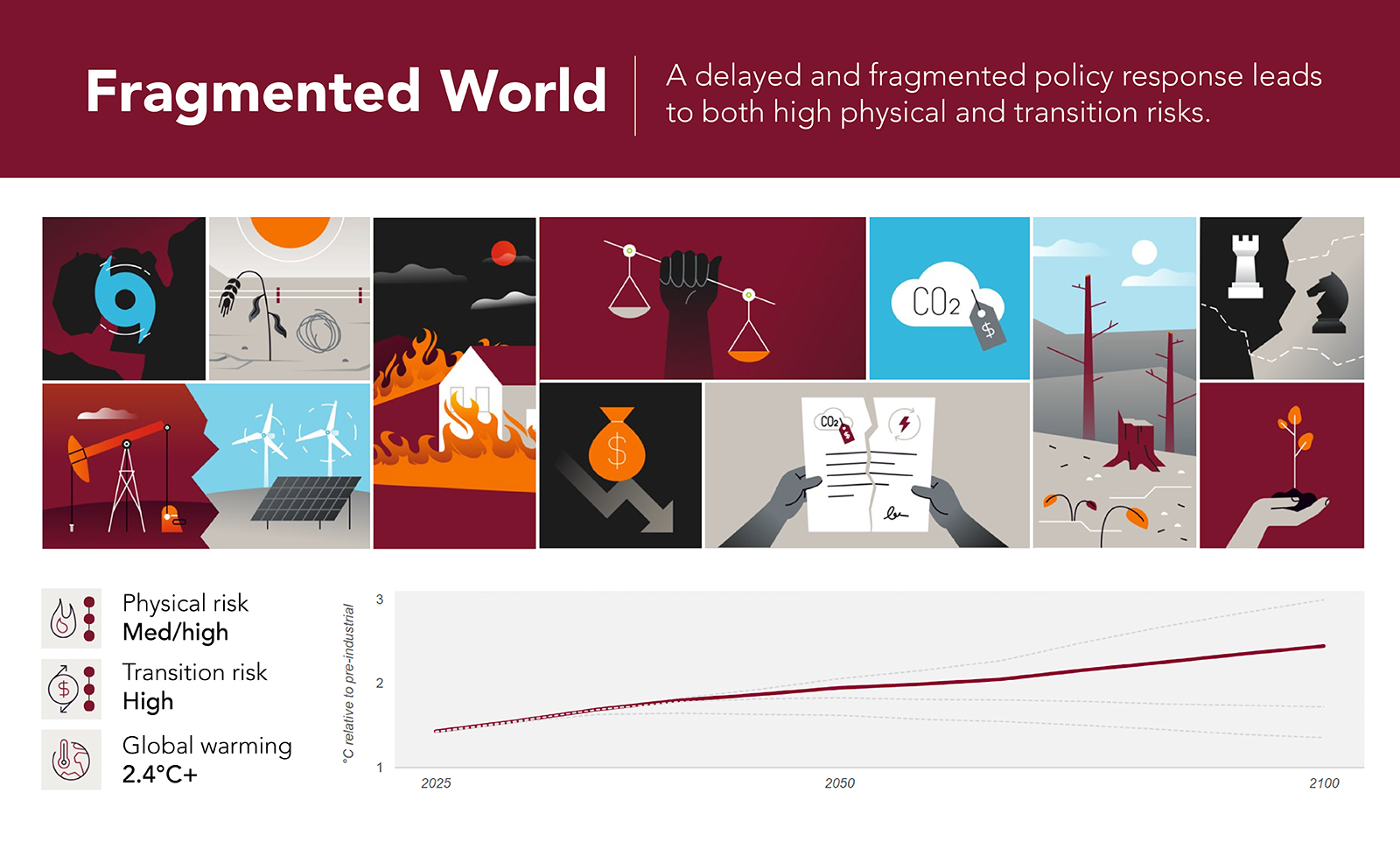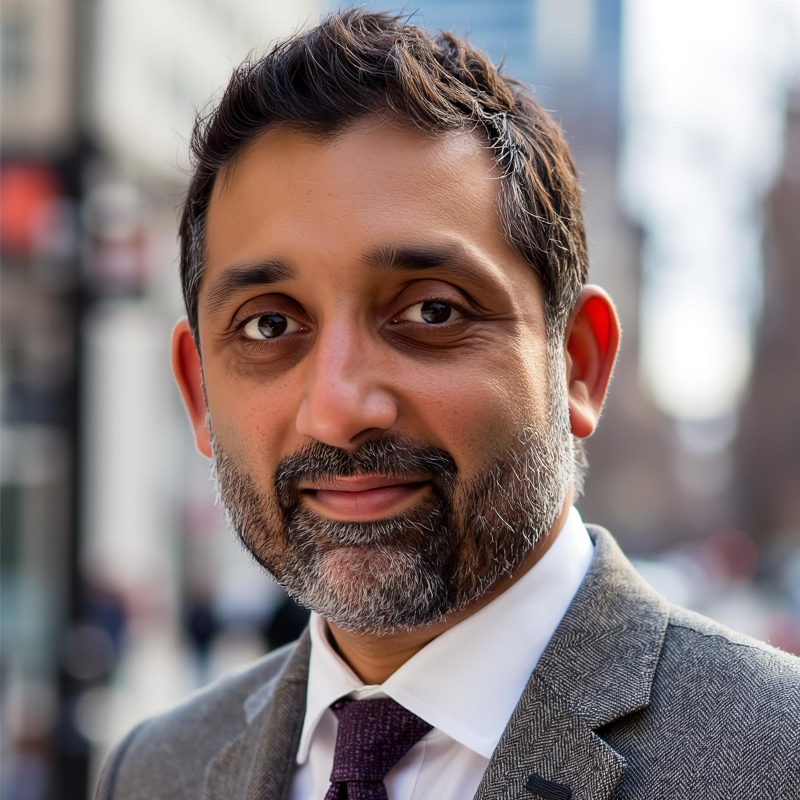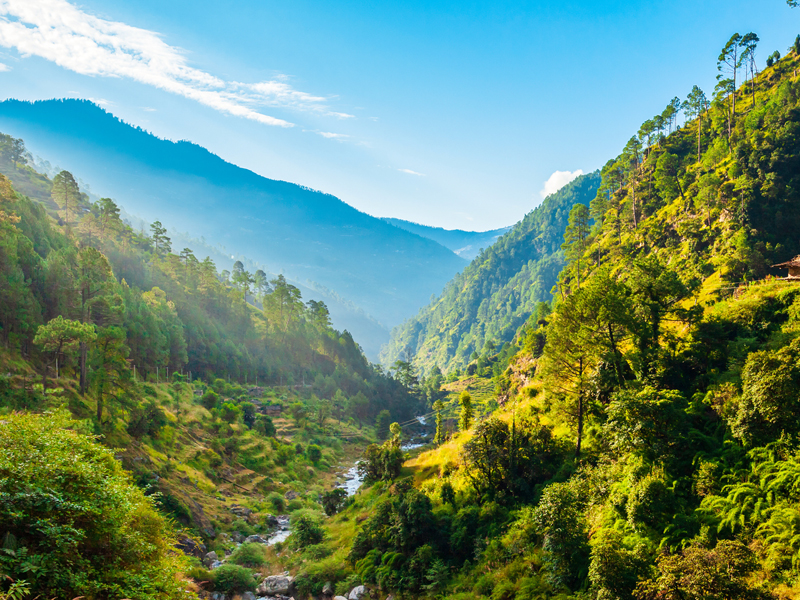2024 was the warmest year on record, with a global average surface temperature of more than 1.5°C above pre-industrial records. As climate risks intensify, the need for credible, science-based scenario planning has never been greater.
BSR’s climate scenario narratives draw on a range of temperature pathways and integrated climate-economic models to evaluate both physical and transition risks. Our decade-by-decade assessments help organizations translate complex climate data into actionable insights, supporting more transparent climate risk disclosures and more resilient, forward-looking business strategies. By aligning with the global transition to a low-carbon economy, companies can not only mitigate risk but also unlock emerging strategic opportunities.
Explore the Scenarios
Taken together, these climate scenarios provide critical foresight for business leaders navigating an increasingly complex risk landscape.
BSR’s updated Climate Scenario Analysis incorporates the latest NGFS 2024 (Phase V) data, including the newly introduced Fragmented World scenario. This scenario reflects a growing risk: a future where global climate action falters amid divergent national policies and weak international coordination. Under such conditions, both physical and transition risks accelerate, driven by policy uncertainty and delayed mitigation. The key set of four scenarios has also been revised with updated emissions trajectories, delivering a more precise view of global decarbonization pathways and their implications for business.
Crucially, the analysis reveals that physical climate risks steadily intensify through the mid-2030s across all pathways. After that point, the scenarios begin to diverge sharply, underscoring the long-term consequences of choices made today. Early and decisive action may involve upfront transition costs, especially in the Net Zero scenario, but the alternative—reactive and disorderly transitions under Delayed Transition or Fragmented World—carries far greater risks for both markets and society.
Authors

Travis Osland
Former Associate, Technology Sectors, BSR
Topics
Let’s talk about how BSR can help you to transform your business and achieve your sustainability goals.
